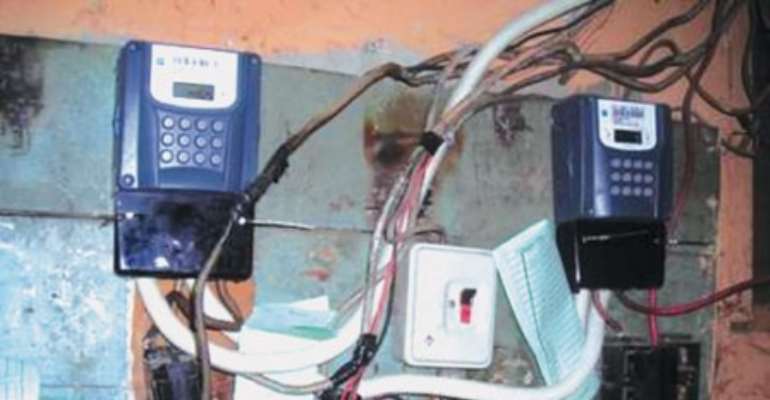Nigeria: Up up goes electricity tariff

The Nigerian Electricity Regulatory Commission (NERC) on Monday announced an increase in electricity tariff by between N1 and N5.
NERC Chairman, Dr Sam Amadi, told a news conference in Abuja that the new tariff would take effect from June 1 as provided for in the Multi-Year Tariff Order (MYTO).
He said with the review, most electricity distribution companies (DISCOs) will retain the N750 fixed charge.
He said that the MYTO provides for bi-annual reviews that take effect on June 1 and Dec. 1 to ensure that some critical and financial variables underlying electricity tariff in Nigeria were realistic, fair and current.
Amadi said the variables that determined the methodical reviews included rate of inflation, exchange rate, gas price and available power generation capacity in the country.
'The MYTO provides that where the review shows that the aggregate of these variables have changed by plus or minus five per cent of the MYTO figures, the changes are significant and would result in a review of the tariff,
'The present review shows certain significant changes. For instance, whilst MYTO had projected inflation rate of 13 per cent, the inflation as at March 30, is 7.8 per cent which is 5.2 per cent less than projected,
'Similarly, MYTO projected an exchange rate of $1 to N178, but the March 30, 2014 data from the CBN shows a rate of N157.30 to $1, which is 11.6 per cent less than projected'', he said.
Amadi also said that the new tariffs would not be equally served to consumers nationwide.
He said some parts of the country would have reduced tariffs and others with slight increase based on the population covered by each DISCO, amount of electricity allocated and facility available to each DISCO.
The NERC boss said that the review indicated a reduction of the wholesale tariff that would be paid to electricity generating companies (GENCOS) from June 1.
He also noted that the cost of the energy charge would have been much higher but for the good macroeconomics management that produced a real reduction in wholesale generation tariffs.
He said that if the review had not been carried out, the fixed charge would have increased from the current N750 to about N1,500.
'The energy charge component for each DISCO would also have increased depending on the power allocation to the DISCOs'', he added.
The NERC boss said that the three components that made up the total tariff paid by consumers included the generation, transmission and distribution.
He decried the gas challenge to the power plants and said that the fixed costs incurred in the three components earlier mentioned would be spread over a much lower quantity of energy projected to be sold to consumers.
Amadi said NERC would continue to ensure that electricity consumers had access to adequate and reliable electricity and put in place mechanisms for improved service delivery from the new electricity companies
Meanwhile, Mr Adekunle Makinde, President, Nigerian Institution of Electrical Electronics Engineers (NIEEE), urged the Federal Government to improve on electricity supply before any increase in tariffs.
Adekunle told NAN that the upward review of electricity tariff might witness another round of protest by consumers across the nation.
He said that consumers were not enjoying power supply because of erratic nature of the supply.
'Now that the government is compelling consumers to pay more, it might result in another round of protests.
'The consumers are already protesting against poor power supply in every area in Lagos, so why do you have to increase power tariff when the supply is not regular', he said.
Makinde also said that the increment did not come as surprise to him because the investors in power sector had been clamouring for it.
'From the operators' angle, the increment is not surprising because the investors had been complaining of not making any profit from the inception.
'The mistake they made was that they did not study the sector before venturing into it.
'They should have known what is on ground and know how to meet up', he said.
